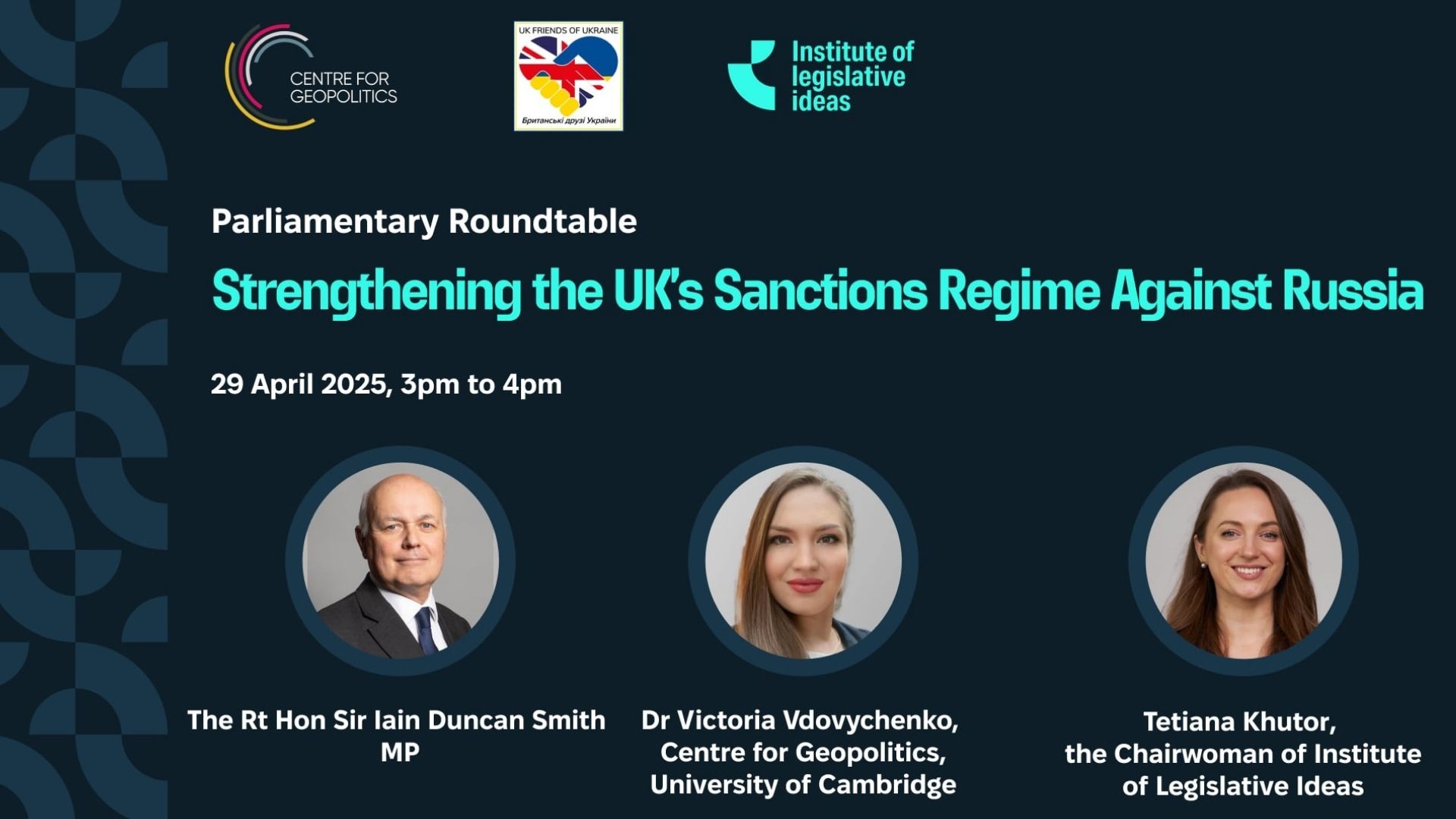Chairwoman of the ILI - Tetyana Khutor presented proposals for strengthening sanctions against Russia at a roundtable in the British Parliament

On April 29, 2025, a parliamentary roundtable titled “Strengthening the UK’s sanctions regime against Russia” took place at Westminster Palace (London). The event was initiated by Member of Parliament Sir Iain Duncan Smith in partnership with the Future of Ukraine Programme of the Centre for Geopolitics at the University of Cambridge.
The roundtable focused on addressing gaps in the implementation of sanctions, combating sanctions evasion, and developing legislative solutions for the confiscation of Russian assets. Ukraine was represented by Tetiana Khutor, Head of the Institute of Legislative Ideas, who presented practical proposals for using frozen Russian assets to finance Ukraine’s defense and recovery.
“When millions are at stake, legal rules apply. When billions are at stake, political will prevails. Right now, the UK has a window of opportunity to become a global leader in the fair redistribution of Russian assets,” emphasized Tetiana Khutor.
How to Make the Aggressor Pay?
During her address, the ILI representative stressed that, in addition to frozen state-owned Russian assets, there are also significant private Russian assets in the UK that could be utilized to support Ukraine. One prominent example is the £2.5 billion from the sale of Chelsea Football Club, which remains frozen without a clear mechanism for allocation. The key focus areas of the presentation included:
- Russian state-owned properties in the UK that have been stripped of diplomatic status (such as Seacox Heath in Sussex) but have not yet been confiscated;
- Examples of countries already implementing similar mechanisms, including Latvia, Canada, Estonia, Lithuania, and the United States;
- New models for asset confiscation and the transfer of proceeds to Ukraine.
Particular attention was given to the case of Latvia, which in 2024 passed a law to confiscate the “House of Moscow” in Riga, transferring it to state ownership. The proceeds from its sale are being directed to support Ukraine. Also mentioned was Estonia’s legal model, which allows frozen assets to be used as advance payments for damage compensation, while preserving the asset owner’s right to seek reimbursement from Russia in the future.
Key Recommendations Presented:
- Confiscation of Russian state-owned properties without diplomatic status, followed by transparent sales and the transfer of proceeds to Ukraine;
- Development of legislation for managing and confiscating private assets of sanctioned individuals, ensuring the right of appeal — following the Estonian example;
- Introduction of a mechanism for transferring confiscated assets and fines for sanctions violations, modeled on the EU and US frameworks;
- Ensuring profitability of frozen assets until their final confiscation.
The participation of the Institute of Legislative Ideas in such a high-level international event represents another strong recognition of the expertise of Ukrainian civil society in the fields of sanctions policy, asset management, and legal instruments for restoring justice.
“This is not only about money. It’s about sending a clear signal to the aggressor: war has a price,” Tetiana Khutor concluded.



